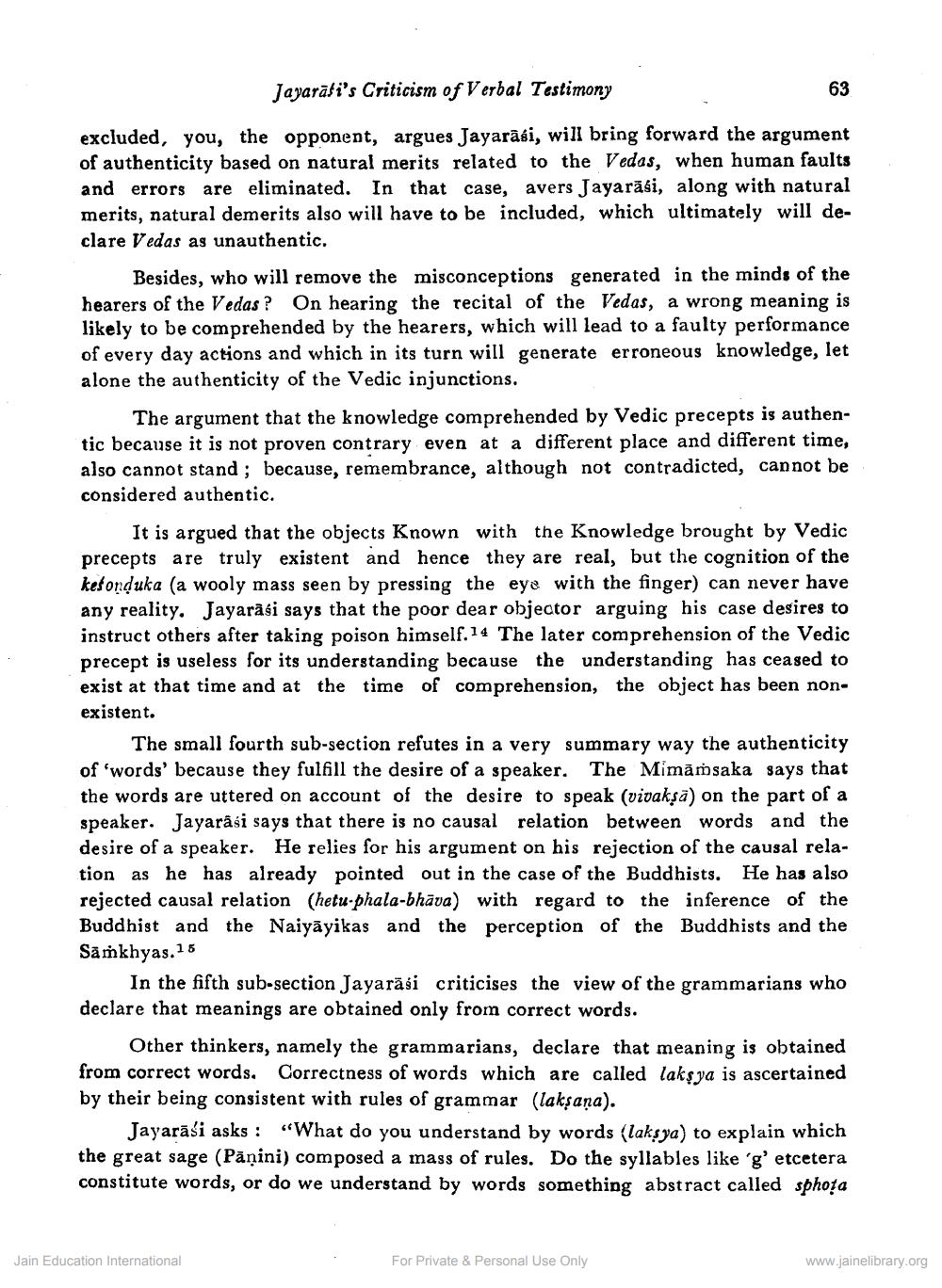Book Title: Jayarasi Criticism of Verbal Testimony Author(s): Jaydev M Shukla Publisher: Z_Aspect_of_Jainology_Part_2_Pundit_Bechardas_Doshi_012016.pdf View full book textPage 7
________________ Jayarāfi's Criticism of Verbal Testimony 63 excluded, you, the opponent, argues Jayarābi, will bring forward the argument of authenticity based on natural merits related to the Vedas, when human faults and errors are eliminated. In that case, avers Jayarāsi, along with natural merits, natural demerits also will have to be included, which ultimately will declare Vedas as unauthentic. Besides, who will remove the misconceptions generated in the minds of the hearers of the Vedas ? On hearing the recital of the Vedas, a wrong meaning is likely to be comprehended by the hearers, which will lead to a faulty performance of every day actions and which in its turn will generate erroneous knowledge, let alone the authenticity of the Vedic injunctions. The argument that the knowledge comprehended by Vedic precepts is authentic because it is not proven contrary even at a different place and different time, also cannot stand ; because, remembrance, although not contradicted, cannot be considered authentic. It is argued that the objects Known with the Knowledge brought by Vedic precepts are truly existent and hence they are real, but the cognition of the kefonduka (a wooly mass seen by pressing the eye with the finger) can never have any reality, Jayaràsi says that the poor dear objector arguing his case desires to instruct others after taking poison himself. 14 The later comprehension of the Vedic precept is useless for its understanding because the understanding has ceased to exist at that time and at the time of comprehension, the object has been nonexistent. The small fourth sub-section refutes in a very summary way the authenticity of 'words' because they fulfill the desire of a speaker. The Mimāṁsaka says that the words are uttered on account of the desire to speak (vivaksa) on the part of a speaker. Jayarâši says that there is no causal relation between words and the desire of a speaker. He relies for his argument on his rejection of the causal relation as he has already pointed out in the case of the Buddhists. He has also rejected causal relation (hetu-phala-bhāva) with regard to the inference of the Buddhist and the Naiyāyikas and the perception of the Buddhists and the Sāṁkhyas.15 In the fifth sub-section Jayarāśi criticises the view of the grammarians who declare that meanings are obtained only from correct words. Other thinkers, namely the grammarians, declare that meaning is obtained from correct words. Correctness of words which are called laks ya is ascertained by their being consistent with rules of grammar (laksana). Jayarāśi asks : "What do you understand by words (laksya) to explain which the great sage (Pāṇini) composed a mass of rules. Do the syllables like 'g' etcetera constitute words, or do we understand by words something abstract called sphota of the RS of the ? with Jain Education International For Private & Personal Use Only www.jainelibrary.orgPage Navigation
1 ... 5 6 7 8 9 10 11 12 13
